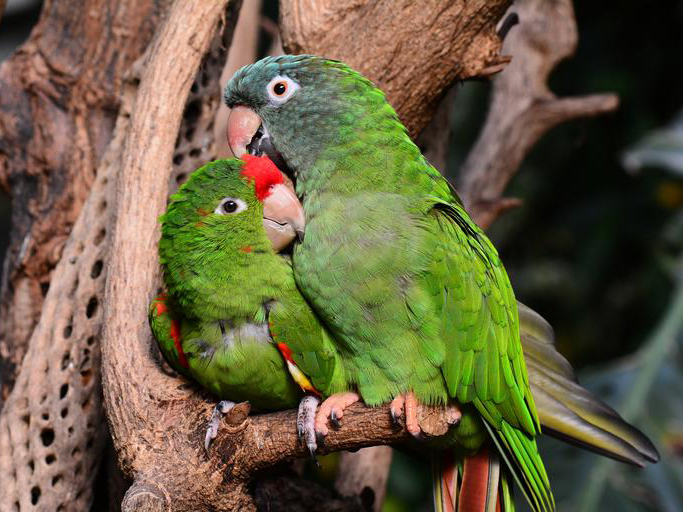Pet Birds
When people think of pets, dogs and cats are typically what come to mind. However, if you crave a companion that barks a little less and sings a little more, a pet bird may be just what you’re looking for. Before adding this feathered-friend to your family, be sure that you’re able to meet their unique care requirements.

“The care requirements for birds are different and can be demanding, but a pet bird can be a joy to interact with,” said Dr. Jordan Gentry, a zoological medicine resident at the Texas A&M College of Veterinary Medicine & Biomedical Sciences.
Any family considering adding a pet bird should thoroughly research the specific species they are interested in, as some may make better pets than others. This is especially important for families with small children.
“Small birds, like budgerigars or cockatiels, are popular for children, but any bird will need adult supervision to ensure care is being met,” said Dr. Gentry. “Any parrots expected to live with or around children should be well socialized and trained. Some larger parrot species should not be allowed around children without close supervision; large cockatoos and macaws, for instance, can cause severe injury if they bite.”
Purchasing an appropriate cage is crucial and can be big investment for the life of the bird. “In general, I recommend as big a cage as possible (if bar spacing is correct),” said Dr. Gentry. “Regardless of cage size, birds need time outside of the cage for exercise and enrichment.”
When feeding pet birds, it is important to realize that the species of bird that you have as companion pets do not all have the same dietary needs. However, part of the daily enrichment for all species should include foraging for food items like they would search for food in the wild.
“There are various companies that make complete pellet diets that can serve as the basis of a pet bird diet. Additional variety can be provided with fresh fruits and vegetables,” said Dr. Gentry. “Every species is unique, and individual requirements should be researched prior to purchasing a pet bird.”
Birds are well known throughout history for their intuitive nature and ability to learn quickly. Parrots, for instance, are extremely intelligent and have the ability to learn unique behaviors. Some basic training of manners like “step-up” are necessary, but many parrots learn much more advanced behaviors such as mimicking sounds.
“One of my favorite behaviors I’ve taught my own bird, a rose-breasted cockatoo, is ‘recall,’ where she will fly and land on my hand from across the room,” Dr. Gentry said.
Pet birds’ life expectancies vary greatly on species. Many common parrot species easily live into their 20s with proper care, whereas other species can achieve much greater longevity.
“There are reports of cockatoos reaching 70 years old and Amazon parrots even older,” said Dr. Gentry. “Anyone considering a pet parrot should realize that it can be a lifestyle changing commitment for many years.”
Birds are very social creatures, and given proper training and socialization, they can provide beauty, intelligence, entertainment, and companionship to your family.
Pet Talk is a service of the College of Veterinary Medicine & Biomedical Sciences, Texas A&M University. Stories can be viewed online at vetmed.tamu.edu/pet-talk. Suggestions for future topics may be directed to editor@cvm.tamu.edu.


